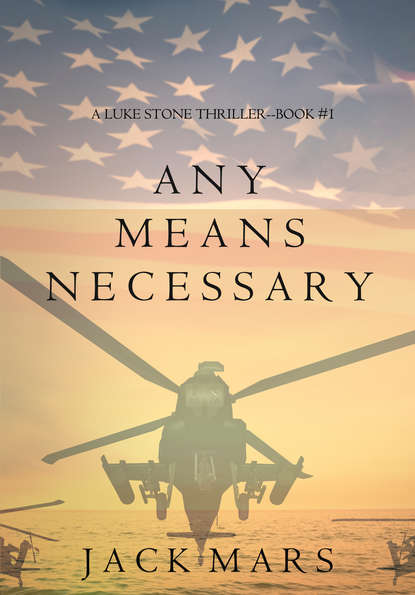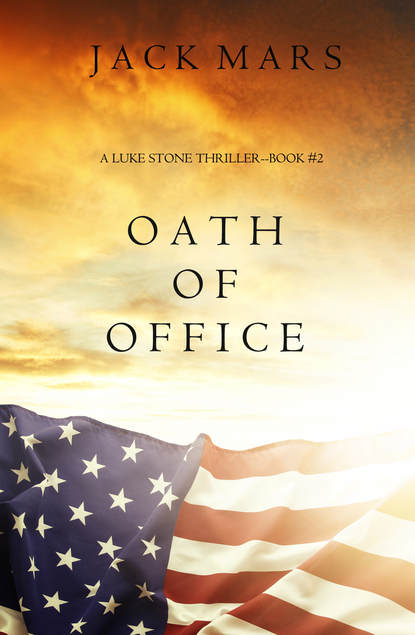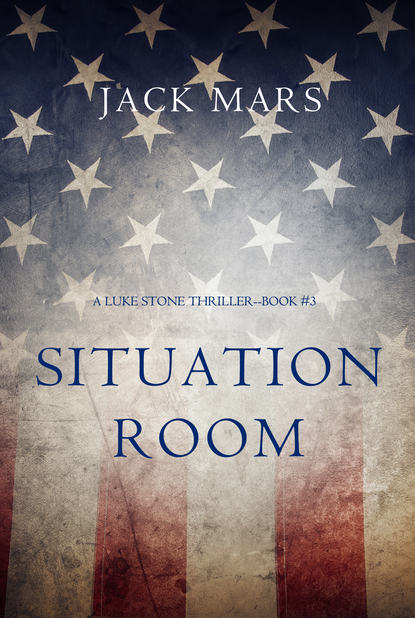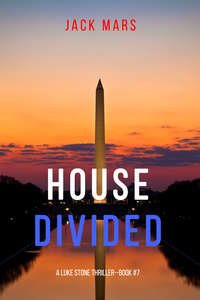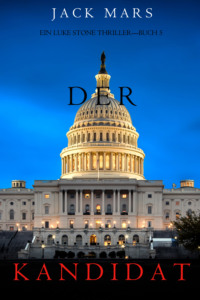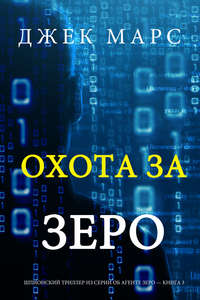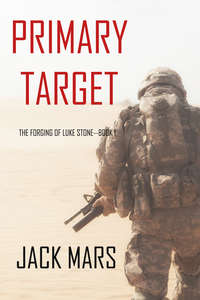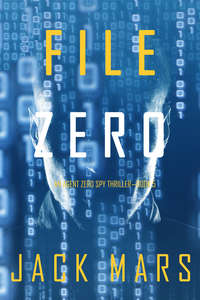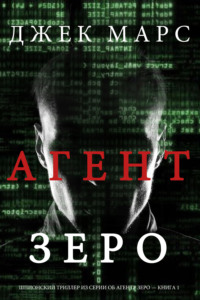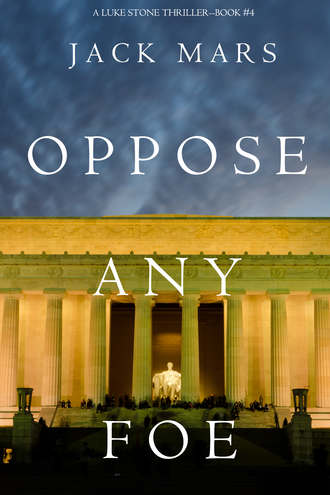
Полная версия
Oppose Any Foe
The guard shrugged. “Yeah.” It was semantics to him. He went home at the end of his shift. Ate at Denny’s, by the looks of him, and chatted the people up. He wore a wedding band on the ring finger of his thick left hand. He had a wife, probably kids. The man had a life outside these walls. The prisoners? Not so much.
A who’s who of rogues and baddies had stayed here, Luke knew. The Unabomber Ted Kaczynski was a current resident, as was Dzhokhar Tsarnaev, the surviving brother of the two Boston Marathon bombers. The mob boss John Gotti had lived here for years, as had his violent enforcer, Sammy “The Bull” Gravano.
It was a breach of facility rules to allow Luke past the visiting room, but it wasn’t exactly visiting hours, and this was a special case. A prisoner here had intelligence to offer, but he insisted on seeing Luke personally – not on a telephone with a thick glass partition between them, but face to face, and man to man, in the cell. The President of the United States herself had asked Luke to take this meeting.
They came to a stop in front of a white door, one among many. Luke felt his heart skip a beat. He was nervous, just a little bit. He didn’t try to catch a glimpse of the man through the tiny windows. He didn’t want to see him that way, like a mouse living in a shoebox. He wanted the man to be legendary, larger than life.
“It’s my duty to inform you,” one of the guards began, “that the prisoners here are considered among the most violent and dangerous currently in the United States federal corrections system. If you choose to enter this cell and you decline personal…”
Luke raised a hand. “Save it. I know the risks.”
The guard shrugged again. “Suit yourself.”
“For the record, I don’t want this conversation recorded,” Luke said.
“All cells are filmed by surveillance cameras twenty-four hours a day,” the guard said now. “But there is no audio.”
Luke nodded. He didn’t believe a word of it. “Good. I’ll scream if I need any help.”
The guard smiled. “We won’t hear it.”
“Then I’ll wave frantically.”
Both guards laughed. “I’ll be down the end of the hall,” one of them said. “Bang on the door when you want to come out again.”
The door clanged as it unlocked, then slid open of its own accord. Somewhere, someone was indeed watching them.
As the door slid away, it revealed a tiny, dismal cell. The first thing Luke noticed was the metal toilet. It had a water faucet at the top of it, an odd combination, but one which made logical sense, he supposed. Everything else was made of stone, and in a fixed location. A narrow stone desk extended from the cinderblock wall, with a rounded stone stool like a small peg coming out of the floor in front of it.
The desk was piled with papers, a few books, and four or five stubby pencils like the ones golfers use to keep score. Like the desk, the bed was narrow and made of stone. A thin mattress covered it and there was one green blanket that looked to be made of wool serge, or some equally itchy material. There was a narrow window in the far wall, framed in green, perhaps two feet tall and six inches wide. It was dark outside that window, except for a sickly yellow light that streamed into the cell from a nearby sodium arc lamp mounted on the outside wall. There was no way to cover the window.
The prisoner stood in an orange jumpsuit, his broad back to them.
“Morris,” the guard said. “Here’s your visitor. Do me a favor and don’t kill him.”
Don Morris, former United States Army colonel and Delta Force commander, founder and former director of the FBI Special Response Team, turned around slowly. His face seemed more lined than before and his salt and pepper hair had gone entirely white. But his eyes were deep-set, sharp, and alert, and his chest, arms, legs, and shoulders looked as strong as they ever had.
His mouth made something almost like a smile, but it didn’t reach his eyes.
“Luke,” he said. “Thanks for coming. Welcome to my home. Eighty-seven square feet, approximately seven and a half by twelve.”
“Hi, Don,” Luke said. “I love what you’ve done with the place.”
“Last chance to change your mind,” one of the guards said behind him.
Luke shook his head. “I think I’ll be okay.”
Don’s eyes fell upon the guards. “You know who this man is, don’t you?”
“We do. Yes.”
“Then I guess,” Don said, “you can imagine how little danger I present to him.”
The door clanged shut. Luke had a moment, as they stared at each other across the cell – he might call it nostalgia. Don had been his commanding officer and his mentor in Delta. When Don started the Special Response Team, he had hired Luke as his first agent. In a lot of ways, and for more than ten years, Don had been like a father to him.
But not anymore. Don had been one of the plotters in the conspiracy to kill the President of the United States and take over the government. He’d been complicit in the kidnapping of Luke’s own wife and child. He’d had foreknowledge of the bombing that killed more than three hundred people at Mount Weather. Don was facing the death penalty, and Luke couldn’t think of anyone more worthy of that fate.
The two men shook hands, and Don placed a hand on Luke’s shoulder, just for a second. It was an awkward gesture by a man no longer accustomed to human contact. Luke knew that Supermax prisoners rarely touched another human being.
“Thanks for all the visits you’ve made and the letters you’ve sent,” Don said. “It’s been a comfort to know my welfare is such a priority for you.”
Luke shook his head. He almost smiled. “Don, until yesterday afternoon, I didn’t even know where they were holding you. And I didn’t care. It could have been a hole in the ground. It could have been at the bottom of Mount Weather.”
Don nodded. “When you lose, they can do whatever they want with you.”
“Richly deserved, in this case.”
Don gestured at the stone peg sprouting like a mushroom out of the ground. “Won’t you have a seat?”
“I’ll stand. Thanks.”
Don stared at Luke, his head leaning quizzically to the side. “I don’t have much hospitality to offer, Luke. This is it.”
“Why would I accept your hospitality, Don?”
Don’s eyes did not look away. “Are you joking? For old times’ sake. As a gesture of thanks for mentoring you through Delta, and giving you your current job. Think of a reason, son.”
“Exactly my point, Don. When I think of you, I think of my own son, and my wife, who you had kidnapped.”
Don raised his hands. “I had nothing to do with that. I promise you. If it were up to me, I would never allow harm to come to Gunner or Becca. They’re like my blood, like my own family. I warned you because I wanted to protect them, Luke. I found out after it had already happened. I’m sorry that happened. There’s nothing in my long career that I regret more.”
Luke scanned Don’s eyes, his body language, looking for… something. Was he lying? Was he telling the truth? What did Don even believe? Who was this man, whom Luke once thought he loved?
Luke sighed. He would take the man’s meager hospitality. He would give him that much, and lie awake tonight wondering why he had.
He squatted on the low stone.
Don sat on the bed. A pause stretched out between them. There was nothing comfortable about it.
“How’s the SRT?” Don said finally. “I suppose they made you director?”
“They offered, but I declined. The SRT is gone, scattered to the winds. Most of the agents were absorbed back into the Bureau proper. Ed Newsam is on the Hostage Rescue Team. Mark Swann went to NSA. I keep in pretty close touch with those guys – I borrow them for an operation from time to time.”
Luke saw something flash in Don’s eyes, and disappear almost before it was there. His baby, the FBI Special Response Team, the culmination of his life’s work, had been dismantled. Had he not known that? Luke supposed he hadn’t.
“Trudy Wellington has disappeared,” Luke said.
Something else appeared in Don’s eyes, and this time it stayed there. If it lingered, it meant Don wanted him to see it. Luke couldn’t tell if it was an emotion, a memory, or some piece of knowledge. He was good at reading people, but Don was an old spy. His mind and his heart were closed books.
“You wouldn’t know anything about that, would you, Don?”
Don shrugged, offered half a smile. “The Trudy I knew was very smart. She had her ear to the ground. If I had to guess, she heard a distant rumble that disturbed her, and she ran away before it could come closer.”
“Did you speak to her?”
Don didn’t answer.
“Don, there’s no sense thinking you’re going to stonewall me about anything. I can make a phone call and find out who you’ve talked to, who’s written to you, and what was in the letter. You have no privacy. Did you talk to Trudy or didn’t you?”
“I did, yes.”
“And what did you tell her?” Luke said.
“I told her that her life was in danger.”
“Based on what?”
Don looked at the ceiling for a moment. “Luke, you know what you know, and that’s good. You also don’t know what you don’t know. If you have any limitations, that’s certainly one of them. What you don’t know in this case, because you don’t involve yourself in politics, is there’s been a quiet war going on behind the scenes for the past six months. The attack at Mount Weather? A lot of high-profile people died that night. And a lot of low-profile people have died since then. I’d say at least as many who died in the original attack. Trudy wasn’t involved in the plot against Thomas Hayes, but not everyone believes that. There are people out there seeking retribution.”
“So she ran on your say-so?”
“I think so, yes.”
“Do you know where she is?”
Don shrugged. “I wouldn’t tell you if I did. One day, if she wants you to know where she is, I’m sure she’ll be the first to tell you.”
Luke had the urge to ask if she was okay, but he controlled himself. He wasn’t going to give Don that kind of power – it would be just what the old man wanted. Instead, another pause stretched out between them. The two men sat in the tiny space, staring into each other’s eyes. Eventually Don broke the silence.
“So who are you working for, if not the SRT? I have trouble picturing Luke Stone out of work for very long.”
Luke shrugged. “I guess you’d say I’m a freelancer, but I only have one client. I work directly for the President, on the rare occasions she calls me. Like she did earlier today, asking me to come out here and see you.”
Don raised an eyebrow. “A freelancer? Do they still pay you your salary and benefits?”
“They gave me a raise,” Luke said. “As a matter of fact, I think they gave me your old salary.”
“Government waste,” Don said, taking on his agency administrator persona and shaking his head. “But it suits you. You never were the Monday to Friday type.”
Luke didn’t answer. From this angle, he could see the view that the window afforded. Nothing – the cinderblock wall of another wing of the building, with a sliver of dark sky visible above.
It was an insidious design. The facility was located in the Rocky Mountains – when Luke arrived tonight, beyond the guard towers and the concrete and the razor wire, he was struck by the vista of the tall peaks that surrounded this place. The air was cold and the mountains were lightly salted with early snow. Even at night, you might say the location was beautiful.
The prisoners would never see it. Luke would bet five dollars that every cell in this prison enjoyed the same vista as every other – a blank wall.
“So what do you want, Don? Susan told me you’ve got a piece of intelligence you’re eager to share, but only with me. I’ve got a lot going on in my life at this moment, but I came out here because that’s my duty. I’m not sure how you obtained this intel, given your current circumstances…”
Don smiled. His eyes were completely divorced from whatever emotion his mouth tried to convey. They seemed like the eyes of an alien, lizard-like, with no empathy, no concern, not even any interest. The eyes of something that might eat you or run from you, but feel nothing while doing so.
“There are some very clever men in here,” he said. “You wouldn’t believe how intricate the communication system is among the prisoners. I’d love to describe it to you – I think you’d be fascinated – but I also don’t want to jeopardize it or put myself at risk. I will give you an example of what I’m talking about, though. Did you hear the man screaming before?”
“Yeah,” Luke said. “I didn’t catch what it was all about. The guards told me he had gone insane…” His voice trailed off.
Of course. The man had been saying something, if you had the ears to hear it.
“Right,” Don said. “The town crier. That’s what I call him. He’s not the only one, and that’s not the only method. Not even close.”
“So what do you have?” Luke said.
“There’s a plot,” Don said, his voice dropping to just above a whisper. “As you know, many of the men in here are affiliated with terrorist networks. They have their own ways of communicating. What I’ve heard is there’s a group in Belgium targeting the old Cold War nukes stored there. The warheads are lightly guarded on a Belgian NATO base. The security is a joke. The terrorists, I’m not sure who, are going to try to steal a warhead, or perhaps a missile, or more than one.”
Luke thought about it for a moment. “What good would that do? Without the nuclear codes the warheads aren’t even operational. They must be aware of that. It’s like risking your life to steal a giant paperweight.”
“I’d assume they have the codes,” Don said. “They either have access to the codes themselves, or they’ve discovered a way to generate them.”
Luke stared at him. “They have no way to launch a warhead. Without the delivery system, they’ll never generate the energy to detonate. This isn’t Bugs Bunny. It’s not like you can hit the thing with a hammer.”
Don shrugged. “Believe what you want to believe, Luke. All I’m telling you is what I heard.”
“Is that everything?” Luke said.
“It is.”
“So why are you choosing to share it? If someone found out you were passing secrets you picked up in here… well, my guess is that communicating isn’t the only thing these guys can do.”
Anger flashed across Don’s face now, like a brief summer squall on the high seas. Everything became dark for a moment, the storm appeared, then passed. He took a deep breath, apparently to calm himself.
“Why wouldn’t I share intelligence that I have? I’m concerned you’ve got me all wrong, Luke. I’m a patriot, as much as you are, if not more. I was risking my life for the United States before you were even born. I did what I did because I love my country, and not for any other reason. Not everyone agrees it was the right thing to do, and that’s why I’m in here. But please don’t question my loyalty, and don’t question my courage, either. There isn’t a man in this facility who frightens me, and that includes you.”
Luke was still skeptical. “And you don’t want anything in return for this?”
Don didn’t say anything for a long moment. He gestured at the messy desk. Then he smiled. There was no humor in it.
“I do want something. It’s not a lot to ask.” He paused, and looked around the tiny cell. “I don’t mind it in here, Luke. Some men really do go crazy – they’re the uneducated ones. They have no access to the life of the mind. But I do. To you, it seems like I’m locked away behind cinderblock walls, but to me, it’s almost like I’m on sabbatical. I was running for forty years straight, without a chance to take a break. These walls don’t imprison me. I’ve lived enough life for a dozen men, and all of it is still up here.”
He tapped himself on the forehead.
“I’m thinking a lot about the old times, the old missions. I’ve started working on my memoirs. I think it will make for fascinating reading one day.”
He stopped. A faraway look entered his eyes. He stared at the wall, but he was seeing something else. “Remember the time in Delta, when they sent us into the Congo to go after the warlord calling himself Prince Joseph? The one with all the child soldiers? Heaven’s Army.”
Luke nodded. “I remember. The brass at JSOC didn’t want you to go. They thought – ”
“I was too old. That’s right. But I went anyway. And we dropped in there at night, you, me, who else? Simpson – ”
“Montgomery,” Luke said. “A couple others.”
Don’s eyes were very alive. “Right. The pilot screwed the pooch and dropped us into the river, one of the tributaries. We all hit the water with forty-pound rucks on.”
“I don’t like to think about it,” Luke said. “I shot that rhinoceros.”
Don pointed at him. “That’s right. I forgot about that. The rhino charged us. I can still see it in the moonlight. But we crawled up there, soaking wet, and slit that murderous bastard’s throat – decapitated his whole team in one swift and decisive strike. And we didn’t split a hair on one child’s head. I was proud of my men that night. I was proud to be an American.”
Luke nodded again, almost smiled. “That was a long time ago.”
“For me, it was yesterday,” Don said. “I just started writing that one. Tomorrow I’ll add the rhino.”
Luke didn’t say anything. It was a mission, one of many. Don’s memoir was going to be one long book.
“So that’s my whole point,” Don said. “It’s not bad in here. The food isn’t even bad – well, not as bad as you might expect. I have my memories. I have a life. I’ve put together a workout routine, most of which I can do right here in the cell. Squats, pushups, chins, even yoga and tai chi moves. I have a sequence, and I move through it for hours each day, change it up, reverse it. It has a mindfulness component to it as well. I believe it would start a fitness craze if people knew about it. I’d like to trademark it – Prison Power. It’s put me in much better shape than when I was out in the world and free to do whatever I pleased.”
“Okay, Don,” Luke said. “This is your retirement villa. That’s nice.”
Don raised a hand. “I want to live, that’s what I’m telling you. They’re going to give me the needle. You know it and I know it. I don’t want the needle. Listen, I’m realistic. I know I’m not going to get a pardon, not in the current political environment. But if the intelligence I’ve given you pans out, I want the President to commute my sentence to life in prison without possibility of parole.”
Luke was frustrated by their meeting. Don Morris was sitting in what amounted to a stone bathroom, writing his memoirs and developing what he hoped would become an exercise fad. It was pathetic. Luke had once thought of Don as a great American.
The control knob on Luke’s blood turned from simmer to boil. He had his own problems, and his own life, but of course Don didn’t care much about that. Don had become the center of his own universe in here.
“Why’d you do it, Don?” He gestured at the cell. “I mean…” He shook his head. “Look at this place.”
Don didn’t hesitate. “I did it to save my country, and I’d do it again. Thomas Hayes was the worst President since Herbert Hoover. Of that, I have no doubt. He was running us into the ground. He had no idea how to project American power in the world, and no inclination to do so. He thought the world took care of itself. He was wrong. The world does NOT take care of itself. We have dark forces arrayed against us – they run amok if for one second we’re not watching them. They step into any power vacuum we leave them. They victimize the weak and defenseless. Our friends lose faith. I could no longer stand by and let these things happen.”
“And what did you get?” Luke said. “Hayes’s vice president is running the country.”
Don nodded. “Right. And she has a bigger pair of cojones than he ever did. People surprise you sometimes. I’m not unhappy with Susan Hopkins as President.”
“Great,” Luke said. “I’ll tell her that. I’m sure she’ll be delighted to hear it. Don Morris is not unhappy with your presidency.” He stood. He was ready to go. This little encounter was going to be a lot to chew on.
Don jumped off the bed. He put his hand on Luke’s shoulder again. For a second, Luke thought Don was going to blurt out something emotional, something Luke would find embarrassing, like, “Don’t go!”
But Don didn’t do that.
“Don’t discount what I told you,” he said. “If it’s real, then we’ve got trouble. Just one nuclear weapon in the hands of the terrorists would be the worst thing you could dream of. They won’t hesitate to use it. One successful launch and the genie is out of the bottle. Who gets hit? Israel? Who do they hit back with their own nukes? Iran? How do you put the brakes on that? Call a time-out? I doubt it. What if we get hit? Or the Russians? Or both? What if automatic retaliatory strikes get triggered? Fear. Confusion. Zero trust. Men in silos, their fingers getting itchy, lingering over that button. There are a lot of nuclear weapons left on Earth, Luke. Once they start launching, there’s no good reason for them to stop.”
CHAPTER SIX
October 20
3:30 a.m.
Georgetown, Washington, DC
A black pickup truck was following him.
Luke had taken a late flight back. Now he was tired – exhausted – and yet still wired and awake. He didn’t know when he would sleep again.
The taxi had dropped him off in front of a row of handsome brownstones. The tree-lined streets were quiet and empty. They seemed to shimmer in the light from the ornate overhead lamps. As the cab pulled away, he stood in the street and soaked up the cool night. The trees were losing their leaves – they were all over the ground. As he watched, a few more drifted down.
He had come straight from the airport to Trudy’s place. The shades were drawn but at least one light was on in the street level apartment. No one was home – the lights were clearly on a timer, and probably a cheap one from a department store. The pattern was always the same. Trudy must have set it before she left.
She still owned the place – Luke knew that much. Swann had hacked her bank account. There were automatic payments in place for her mortgage, her association fees, and her electricity. She had paid two years of estimated real estate taxes upfront.
She had disappeared, but the apartment was here, going right along by itself as if nothing had happened.
Why did he keep coming here? Did he think she would suddenly be home one night? Did he think these past months would have erased themselves?
He paused for just a few seconds, facing away from the pickup truck, picturing it back there, remembering it from when he had walked passed it just a moment ago.
It was large, heavy duty, the kind of truck you saw on construction sites. The windows in its cab were smoked, making it impossible to see much inside. Even so, he had the sense that there were two silhouettes behind those windows. The truck’s headlights had been off when he walked past, and they were still off – there had been no approaching lights to tip him off. What had given the truck away was sound. He could hear its engine rumbling.
There was a gas station and convenience store at the bottom of the hill. It was lit up on the outside above the pumps, but the store itself looked to be closed. Luke walked down the middle of the street, toward the beckoning light.
He glanced to his left and his right without turning his head. On either side, expensive cars were parked nose to tail against the curb in unbroken lines. This was a crowded neighborhood, and there wasn’t much parking. There was no obvious way to get off the street and onto the sidewalk.
He broke into a sprint.
He did it without warning. He didn’t accelerate gradually from a walk to a run. One moment he was walking, and a heartbeat later he was running as fast as he could. Behind him, the pickup roared into life. Its tires burned rubber on the pavement, the shriek of the wheels tearing open the quiet night.
Luke dove to his right, sliding head first over the hood of a white Lexus. He slid off the car and tumbled onto the sidewalk, landing on his back, rolling into a sitting position while pulling his Glock from the shoulder holster inside his jacket, all in one move.
The Lexus started to disintegrate behind him. The truck had stopped, and its passenger side window was down. A man in a ski mask was there, firing a submachine gun with a giant sound suppressor. The gun had a drum magazine attached to the bottom, probably twelve dozen rounds. Luke absorbed all of this information in an instant, before his conscious mind was even aware of it.


